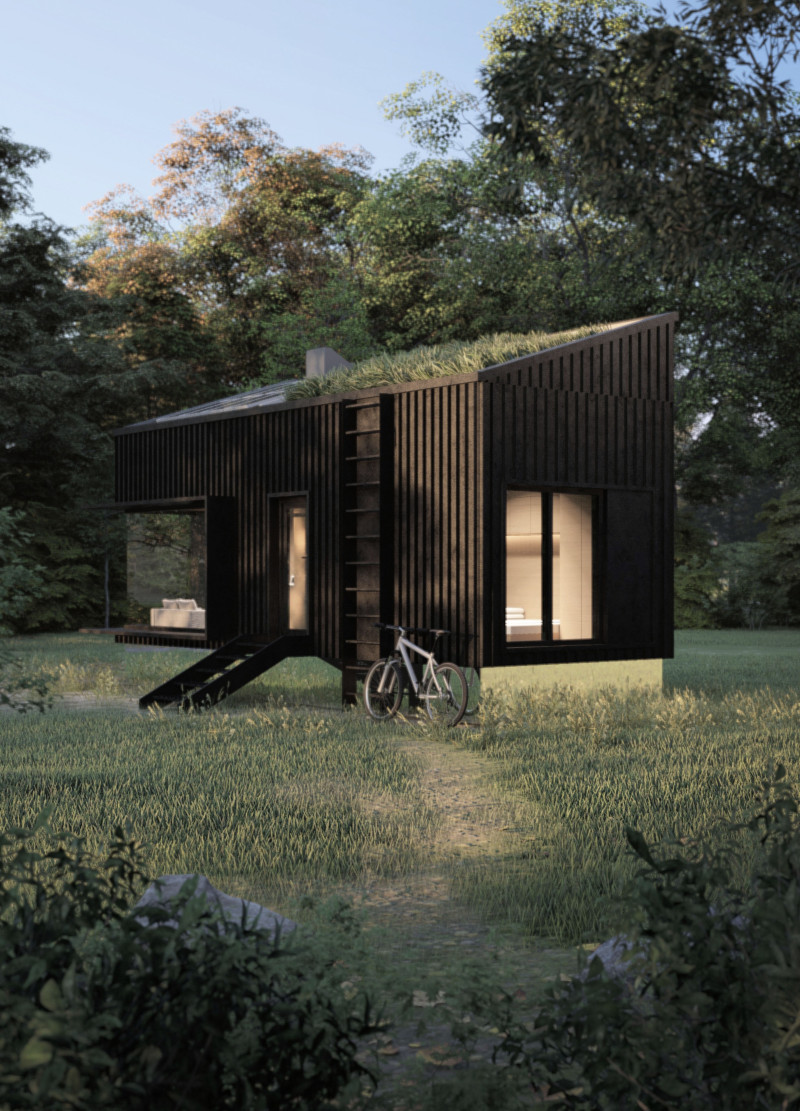5 key facts about this project
Re-house is a carefully designed tiny house that addresses sustainability and efficient resource use. Situated in various geographical contexts, it serves as a practical living solution for different types of users. The design focuses on modularity and versatility, allowing the house to function well in various seasons and adapt to individual needs.
Architectural Approach
The approach emphasizes the creation of a prefabricated structure that is easy to transport and assemble. This modularity allows for quick setup at the chosen site, minimizing disruption to the environment. As a result, Re-house is equipped to accommodate multiple types of terrains and user preferences, making it a flexible option in both urban and rural settings.
Sustainability Features
Re-house incorporates important sustainability features, including passive heat recovery systems and efficient roof and wall designs. These elements work together to ensure comfort while reducing energy consumption. The rooftop garden not only provides fresh food but also aligns with the overall goal of resource conservation, reinforcing the house's commitment to environmental responsibility.
Material Selection
The selection of materials is a key aspect of Re-house’s design. Interior walls are lined with recycled Enviroboard, emphasizing the project's focus on reducing waste. The use of foldable Enviroboard wall panels adds adaptability to the space. Icestone recycled glass countertops offer both an environmentally friendly and functional approach, contributing to a pleasant living environment.
Structural Integrity
The structure is supported by Ecosteel recycled steel panels, which provide durability and efficiency. This combination of materials helps to lessen the ecological impact while creating a space that meets modern living standards. Additionally, the inclusion of high Solar Reflective Index gravel roofs and green roofs helps counter urban heat, enhancing the visual appeal of the surroundings and promoting overall sustainability.



















































